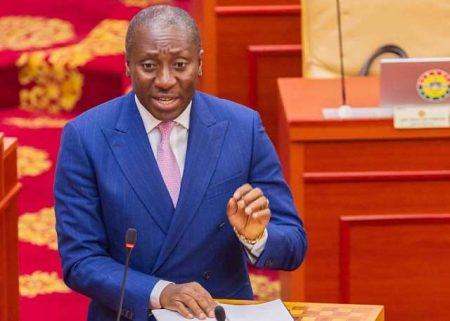The Ghana Revenue Authority (GRA) has affirmed its decision to implement the GHC1 fuel levy, effective July 16, 2025. This announcement follows an earlier postponement and considerable public debate surrounding the levy’s potential impact on fuel prices and the overall Ghanaian economy. The levy, officially enacted under the Energy Sector Levies (Amendment) Act, 2025 (Act 1141), has been a source of contention since its initial proposal. The GRA’s decision, reached after consultations with key stakeholders including the Ministry of Finance and the Ministry of Energy, marks the culmination of a period of evaluation and monitoring of global market trends, aiming to minimize the impact on domestic fuel prices. The initial postponement, announced on June 13, 2025, signaled the government’s sensitivity to public concerns and provided an opportunity to assess market dynamics before enacting the levy.
The GHC1 fuel levy is not merely a revenue-generating measure; it is intrinsically linked to Ghana’s energy security. The government has justified the levy as crucial for addressing the mounting debt owed to Independent Power Producers (IPPs). These debts, if left unaddressed, could potentially destabilize the power sector and lead to power outages, reminiscent of the challenging “dumsor” period that plagued the nation previously. The government contends that the levy is a necessary step to avert a recurrence of such energy crises and maintain a stable power supply, essential for economic growth and societal well-being.
The levy’s announcement was met with significant opposition from various sectors of Ghanaian society. Civil society organizations, consumer advocacy groups, and the Minority in Parliament voiced strong concerns, arguing that the added cost would exacerbate the existing cost-of-living crisis and disproportionately burden fuel consumers who are already struggling with economic pressures. These critics perceive the levy as an additional burden on an already strained population, further impacting their ability to afford basic necessities.
The levy has become a political flashpoint, with opposition lawmakers accusing the government of substituting the unpopular electronic levy (E-levy) with the fuel levy, which they have dubbed the “D-levy” or “Dumsor levy.” This characterization frames the levy as a veiled attempt to circumvent public resistance to the E-levy while imposing another financial burden on citizens. The timing of the levy’s implementation, following the E-levy controversy, has fueled skepticism about the government’s motives and its commitment to alleviating the financial pressures faced by Ghanaians.
The initial postponement of the levy was interpreted by some as a strategic maneuver to mitigate public discontent and create space for further stakeholder engagement. By delaying the implementation, the government aimed to reduce immediate public backlash and potentially build consensus through dialogue with concerned parties. However, the GRA’s recent announcement confirms the government’s resolve to proceed with the levy, indicating that the consultations and market evaluations have reinforced the perceived necessity of the measure.
While the government insists the levy will not automatically translate into higher fuel prices, industry analysts are less certain. They posit that the ultimate impact on pump prices will be influenced by a complex interplay of factors, including fluctuations in global oil prices, the stability of the Ghanaian cedi against other currencies, and the willingness of oil marketing companies to absorb a portion of the added cost. The uncertainty surrounding these factors creates apprehension among consumers, who await the mid-July implementation with concern about its potential impact on their daily expenses. Furthermore, the public’s focus remains on government transparency regarding the utilization of the levy funds, ensuring accountability and preventing the recurrence of an energy crisis. The effective and transparent management of these funds will be crucial in building public trust and justifying the implementation of this controversial levy.














